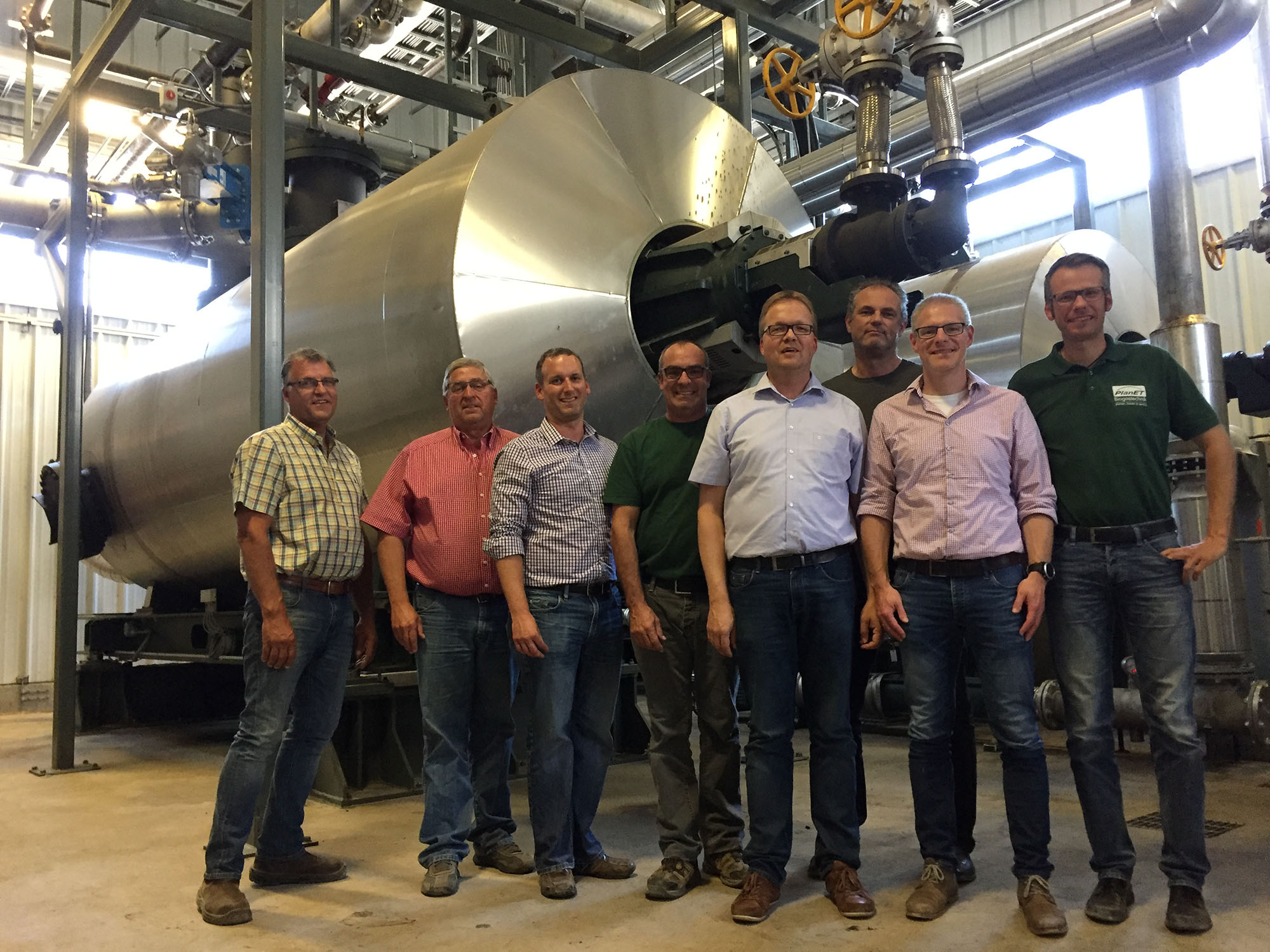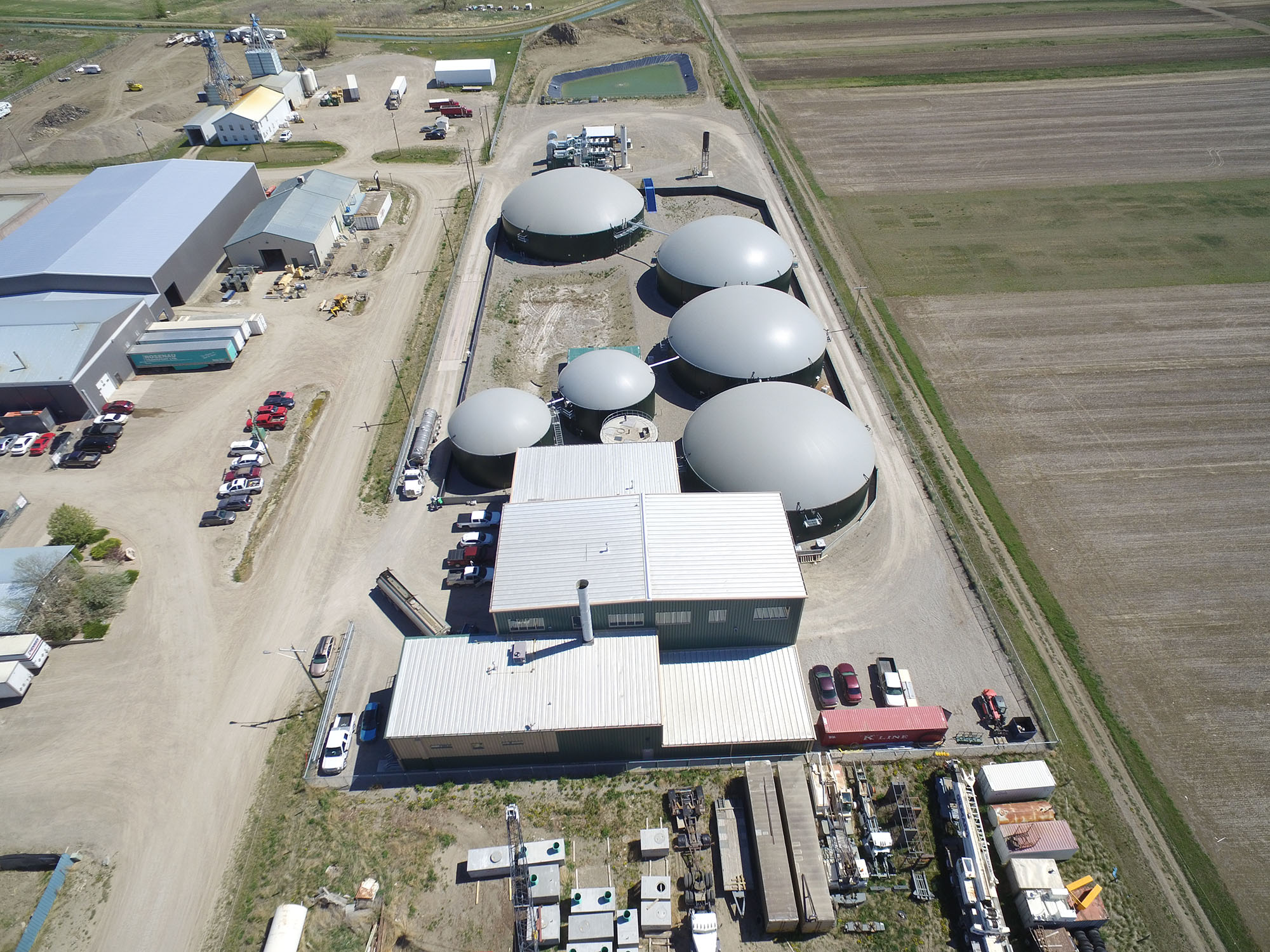
After seven years of operation, an important rural development project has brought economic, environmental, and societal benefits to southern Alberta through waste reduction, energy generation, and advanced technology application.
Since 2013, manure and food processing waste have become a value-added opportunity in Feedlot Alley near Lethbridge, Alberta. A full-scale, biogas co-generation project is being fueled by organics sourced from Alberta’s agri-food industry and is now producing renewable energy for the electrical grid and a high-quality fertilizer for farmers.
Waste from livestock producers, food processing sites, and local restaurants are essential ingredients for making biogas. With support from Emissions Reduction Alberta (ERA), Lethbridge Biogas has collected this waste and processed it in large anaerobic digesters to produce a high methane yielding biogas that is burned to generate electricity.
As Western Canada’s largest biogas cogeneration facility, it is providing value-added opportunities for local agricultural producers, renewable thermal and electrical energy, sustainable management of organic resources, and reductions in emissions and odour.
“The long-term benefit is pretty amazing. We eliminate some air pollution. We eliminate some land pollution. And we have a sustainable, renewable source of energy,” said Than Hurlburt, president, Lethbridge Biogas.
The project reduces emissions in multiple ways. Biogas production takes methane, a greenhouse gas (GHG) 25 times more potent than carbon dioxide, out of manure and burns it to produce electricity. Digestate, the leftover product from the process, is an even better fertilizer than manure with fewer odors and significantly less emissions. The process also diverts food waste from the landfill, supporting further emissions reductions. The facility has the potential to reduce GHG emissions up to 225,000 tonnes of CO2e by 2021.

“We are in a region where there is a lot of agri-food processing. So, we have a lot of vegetable processing facilities. We have potato processing. We have pork and poultry processing. At the backend of all these facilities there is always something left over, which traditionally would go to landfill. And, on the farmer level, he has a product that doesn’t stink as much. He has a product that has a better nutrient ratio [due to the new fertilizer],” said Hurlburt.
ERA contributed over $8 million to the project valued at nearly $30 million.
“There is a lot of opportunity in Alberta because we have a lot of agricultural operations. It is a proven technology. It works, even in Canadian climate. It has been around for decades in Europe,” said Stefan Michalski, director of operations, Lethbridge Biogas. “The nature of the biological process is that it produces constantly. We are running 24/7, power gets produced 24/7, we deliver power around the clock.”
Lethbridge Biogas currently has a generating capacity of 2.8 megawatts (MW)—enough to power 2,800 homes. Power typically makes up over 50 per cent of Lethbridge Biogas’ revenue stream. In addition to selling electricity, they also collect tipping fees for organic wastes and sell carbon offsets.
Lethbridge Biogas is the first plant in North America to incorporate Alberta-based thermal hydrolysis technology into an existing anaerobic digestion plant. This CFIA approved technology allows Lethbridge Biogas to properly dispose of and manage animal by-products and animal carcasses including specified risk material. The system has been operational since mid-2017 and has saved local cattle producers significant amounts of disposal costs.
“Deep down inside we want to leave something better for our children, our grandchildren, our great grandchildren and all the generations to come,” said Hurlburt. “The County of Lethbridge is the largest cattle feeding area in the country. If you take the total amount of manure that’s generated, we could generate 100 times more energy.”
Currently, Lethbridge Biogas is working on the next innovative addition to the plant. In 2021, they plan to be the first large-scale producer of renewable natural gas (RNG) in Alberta. A biogas upgrading process will be added, essentially removing the CO2 from the biogas to produce pipeline grade RNG to be injected in the natural gas distribution grid.
